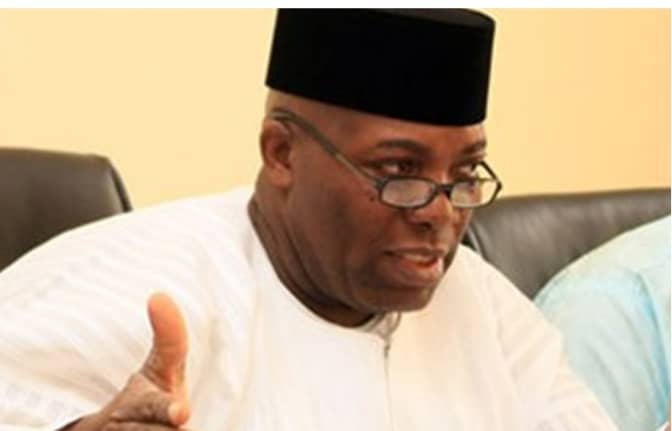Dr. Doyin Okupe, a former Presidential Spokesperson and Director-General of the Labour Party (LP) Presidential Campaign Council has described the leadership crisis in Rivers State as a “total misfortune” and emphasized the urgent need for a political solution. In an interview with the News Agency of Nigeria (NAN) in Lagos, Okupe discussed the deepening crisis and offered insights on how to resolve the conflict that has polarized the state’s political landscape.
Rivers State has been engulfed in a political crisis stemming from a power struggle between Governor Siminalayi Fubara and his predecessor, Nyesom Wike, who currently serves as the Minister of the Federal Capital Territory (FCT). This feud has significantly impacted the State House of Assembly, where lawmakers loyal to both political figures have elected different Speakers, creating a bifurcated legislative body.
The conflict intensified when lawmakers loyal to Wike defected from the ruling People’s Democratic Party (PDP) to join the All Progressives Congress (APC). Additionally, several commissioners loyal to Wike resigned from Governor Fubara’s cabinet. In response to these defections, a State High Court in Port Harcourt barred the defected lawmakers from parading themselves as members of the House. This order was prompted by a suit filed by Victor Jumbo, a factional Speaker and two other lawmakers loyal to Governor Fubara.
However, the Court of Appeal in Abuja recently vacated the High Court’s order, reinstating the 25 members who had defected to the APC. The appellate court, in a unanimous decision by a three-man panel of Justices, ruled that the Rivers State High Court lacked the jurisdiction to issue the initial order. This judicial flip-flop underscores the complexity and legal entanglements within the crisis.
Okupe attributes the ongoing crisis to a fundamental disregard for rules and laws. He believes that while the judiciary can play a crucial role in addressing the issue, the ultimate resolution lies in a political solution. Okupe stated, “That is a total misfortune, and the real issue if we look at it properly, is that we do not obey our laws. If only we obey our laws, this situation cannot surface at all. The courts have to help, the judiciary must be consistent, fair, and judge according to law, not any other sentiment.”
Emphasizing the need for strict adherence to the rule of law, Okupe pointed out that the judiciary must adjudicate impartially and without bias. However, he highlighted that the enduring solution to the crisis would be political, as politics fundamentally revolves around reconciling interests. He argued that political leaders need to engage in dialogue to reconcile the interests of the conflicting parties.
“In all my years of politics, I have never seen anything in this world that a political solution cannot resolve in all political disagreements,” Okupe said. “Politics is about interest. What is the interest of A, and what is the interest of B, and how can we marry them? That’s all.”
Okupe’s perspective suggests that the political crisis in Rivers State can be effectively resolved by addressing and reconciling the underlying interests of the conflicting parties. This approach requires open dialogue, negotiation, and compromise. Political leaders must come to the table to discuss their differences and find common ground that serves the best interests of the state and its people.
Furthermore, Okupe called for the judiciary to maintain consistency and fairness in its rulings to support the political reconciliation process. He noted that the judiciary’s role is crucial in ensuring that laws are upheld and that justice is served without bias.




